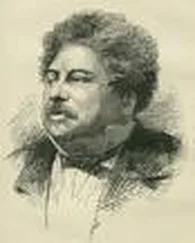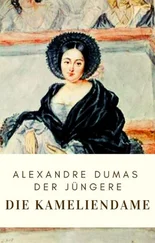Alexandre Dumas - Mary Stuart
Здесь есть возможность читать онлайн «Alexandre Dumas - Mary Stuart» — ознакомительный отрывок электронной книги совершенно бесплатно, а после прочтения отрывка купить полную версию. В некоторых случаях можно слушать аудио, скачать через торрент в формате fb2 и присутствует краткое содержание. Жанр: literature_19, foreign_antique, foreign_prose, на английском языке. Описание произведения, (предисловие) а так же отзывы посетителей доступны на портале библиотеки ЛибКат.
- Название:Mary Stuart
- Автор:
- Жанр:
- Год:неизвестен
- ISBN:нет данных
- Рейтинг книги:3 / 5. Голосов: 1
-
Избранное:Добавить в избранное
- Отзывы:
-
Ваша оценка:
- 60
- 1
- 2
- 3
- 4
- 5
Mary Stuart: краткое содержание, описание и аннотация
Предлагаем к чтению аннотацию, описание, краткое содержание или предисловие (зависит от того, что написал сам автор книги «Mary Stuart»). Если вы не нашли необходимую информацию о книге — напишите в комментариях, мы постараемся отыскать её.
Mary Stuart — читать онлайн ознакомительный отрывок
Ниже представлен текст книги, разбитый по страницам. Система сохранения места последней прочитанной страницы, позволяет с удобством читать онлайн бесплатно книгу «Mary Stuart», без необходимости каждый раз заново искать на чём Вы остановились. Поставьте закладку, и сможете в любой момент перейти на страницу, на которой закончили чтение.
Интервал:
Закладка:
“Madame de Rere’s words;
The English;
His mother;
The Earl of Argyll;
The Earl of Bothwell;
The Edinburgh dwelling.”
SECOND LETTER
“It seems that you have forgotten me during your absence, so much the more that you had promised me, at setting out, to let me know in detail everything fresh that should happen. The hope of receiving your news was giving me almost as much delight as your return could have brought me: you have put it off longer than you promised me. As for me, although you do not write, I play my part always. I shall take him to Craigmiller on Monday, and he will spend the whole of Wednesday there. On that day I shall go to Edinburgh to be bled there, unless you arrange otherwise at least. He is more cheerful than usual, and he is better than ever.
“He says everything he can to persuade me that he loves me; he has a thousand attentions for me, and he anticipates me in everything: all that is so pleasant for me, that I never go to him but the pain in my side comes on again, his company weighs on me so much. If Paris brought me what I asked him, I should be soon cured. If you have not yet returned when I go you know where, write to me, I beg you, and tell me what you wish me to do; for if you do not manage things prudently, I foresee that the whole burden will fall on me: look into everything and weigh the affair maturely. I send you my letter by Beaton, who will set out the day which has been assigned to Balfour. It only remains for me to beg you to inform me of your journey.
“Glasgow, this Saturday morning.”
THIRD LETTER
“I stayed you know where longer than I should have done, if it had not been to get from him something that the bearer of these presents will tell you it was a good opportunity for covering up our designs: I have promised him to bring the person you know to-morrow. Look after the rest, if you think fit. Alas! I have failed in our agreement, for you have forbidden me to write to you, or to despatch a messenger to you. However, I do not intend to offend you: if you knew with what fears I am agitated, you would not have yourself so many doubts and suspicions. But I take them in good part, persuaded as I am that they have no other cause than love – love that I esteem more than anything on earth.
“My feelings and my favours are to me sure warrants for that love, and answer to me for your heart; my trust is entire on this head: but explain yourself, I entreat you, and open your soul to me; otherwise, I shall fear lest, by the fatality of my star, and by the too fortunate influence of the stars on women less tender and less faithful than I, I may be supplanted in your heart as Medea was in Jason’s; not that I wish to compare you to a lover as unfortunate as Jason, and to parallel myself with a monster like Medea, although you have enough influence over me to force me to resemble her each time our love exacts it, and that it concerns me to keep your heart, which belongs to me, and which belongs to me only. For I name as belonging to me what I have purchased with the tender and constant love with which I have burned for you, a love more alive to-day than ever, and which will end only with my life; a love, in short, which makes me despise both the dangers and the remorse which will be perhaps its sad sequel. As the price of this sacrifice, I ask you but one favour, it is to remember a spot not far from here: I do not exact that you should keep your promise to-morrow; but I want to see you to disperse your suspicions. I ask of God only one thing: it is that He should make you read my heart, which is less mine than yours, and that He should guard you from every ill, at least during my life: this life is dear to me only in so far as it pleases you, and as I please you myself. I am going to bed: adieu; give me your news to-morrow morning; for I shall be uneasy till I have it. Like a bird escaped from its cage, or the turtle-dove which has lost her mate, I shall be alone, weeping your absence, short as it may be. This letter, happier than I, will go this evening where I cannot go, provided that the messenger does not find you asleep, as I fear. I have not dared to write it in the presence of Joseph, of Sebastian, and of Joachim, who had only just left me when I began it.”
Thus, as one sees, and always supposing these letters to be genuine, Mary had conceived for Bothwell one of those mad passions, so much the stronger in the women who are a prey to them, that one the less understands what could have inspired them. Bothwell was no longer young, Bothwell was not handsome, and yet Mary sacrificed for him a young husband, who was considered one of the handsomest men of his century. It was like a kind of enchantment. Darnley, the sole obstacle to the union, had been already condemned for a long time, if not by Mary, at least by Bothwell; then, as his strong constitution had conquered the poison, another kind of death was sought for.
The queen, as she announces in her letter to Bothwell, had refused to bring back Darnley with her, and had returned alone to Edinburgh. Arrived there, she gave orders for the king to be moved, in his turn, in a litter; but instead of taking him to Stirling or Holyrood, she decided to lodge him in the abbey of the Kirk of Field. The king made some objections when he knew of this arrangement; however, as he had no power to oppose it, he contented himself with complaining of the solitude of the dwelling assigned him; but the queen made answer that she could not receive him at that moment, either at Holyrood or at Stirling, for fear, if his illness were infectious, lest he might give it to his son: Darnley was then obliged to make the best of the abode allotted him.
It was an isolated abbey, and little calculated by its position to dissipate the fears that the king entertained; for it was situated between two ruined churches and two cemeteries: the only house, which was distant about a shot from a cross-bow, belonged to the Hamiltons, and as they were Darnley’s mortal enemies the neighbourhood was none the more reassuring: further, towards the north, rose some wretched huts, called the “Thieves’ cross-roads”. In going round his new residence, Darnley noticed that three holes, each large enough for a man to get through, had been made in the walls; he asked that these holes, through which ill-meaning persons could get in, should be stopped up: it was promised that masons should be sent; but nothing was done, and the holes remained open.
The day after his arrival at Kirk of Field, the king saw a light in that house near his which he believed deserted; next day he asked Alexander Durham whence it came, and he heard that the Archbishop of St. Andrew’s had left his palace in Edinburgh and had housed there since the preceding evening, one didn’t know why: this news still further increased the king’s uneasiness; the Archbishop of St. Andrew’s was one of his most declared enemies.
The king, little by little abandoned by all his servants lived on the first floor of an isolated pavilion, having about him only this same Alexander Durham, whom we have mentioned already, and who was his valet. Darnley, who had quite a special friendship for him, and who besides, as we have said, feared some attack on his life at every moment, had made him move his bed into his own apartment, so that both were sleeping in the same room.
On the night of the 8th February, Darnley awoke Durham: he thought he heard footsteps in the apartment beneath him. Durham rose, took a sword in one hand, a taper in the other, and went down to the ground floor; but although Darnley was quite certain he had not been deceived, Durham came up again a moment after, saying he had seen no one.
The morning of the next day passed without bringing anything fresh. The queen was marrying one of her servants named Sebastian: he was an Auvergnat whom she had brought with her from France, and whom she liked very much. However, as the king sent word that he had not seen her for two days, she left the wedding towards six o’clock in the evening, and came to pay him a visit, accompanied by the Countess of Argyll and the Countess of Huntly. While she was there, Durham, in preparing his bed, set fire to his palliasse, which was burned as well as a part of the mattress; so that, having thrown them out of the window all in flames, for fear lest the fire should reach the rest of the furniture, he found himself without a bed, and asked permission to return to the town to sleep; but Darnley, who remembered his terror the night before, and who was surprised at the promptness that had made Durham throw all his bedding out of the window, begged him not to go away, offering him one of his mattresses, or even to take him into his own bed. However, in spite of this offer, Durham insisted, saying that he felt unwell, and that he should like to see a doctor the same evening. So the queen interceded for Durham, and promised Darnley to send him another valet to spend the night with him: Darnley was then obliged to yield, and, making Mary repeat that she would send him someone, he gave Durham leave for that evening. At that moment Paris; of whom the queen speaks in her letters, came in: he was a young Frenchman who had been in Scotland for some years, and who, after having served with Bothwell and Seyton, was at present with the queen. Seeing him, she got up, and as Darnley still wished to keep her —
Читать дальшеИнтервал:
Закладка:
Похожие книги на «Mary Stuart»
Представляем Вашему вниманию похожие книги на «Mary Stuart» списком для выбора. Мы отобрали схожую по названию и смыслу литературу в надежде предоставить читателям больше вариантов отыскать новые, интересные, ещё непрочитанные произведения.
Обсуждение, отзывы о книге «Mary Stuart» и просто собственные мнения читателей. Оставьте ваши комментарии, напишите, что Вы думаете о произведении, его смысле или главных героях. Укажите что конкретно понравилось, а что нет, и почему Вы так считаете.












